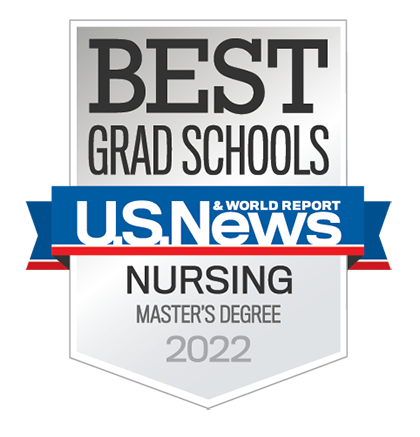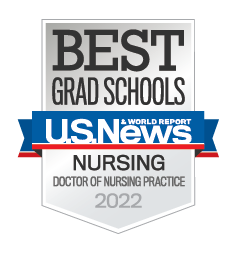Second fellowship cohort gains skills and understanding about people with disabilities

.jpg/975w/jpegp)
(May 13, 2019) – When Allison Edwards, DrPH, RN, took undergraduate nursing students to clinical sites that serve people with intellectual and developmental disabilities, she observed that the students acted awkwardly.
“I noticed that they didn’t have the skill set to even communicate. They didn’t know what to do,” says Edwards, assistant professor in Cizik School of Nursing at UTHealth’s Department of Undergraduate Studies.
根据疾病控制和预防中心的说法,由于6100万美国成年人有残疾,因此每个护士很有可能在某个时候照顾残疾患者。
“The students need to know how best to provide these patients with care. They need exposure to disabilities to transition into practice, because disabilities are universally experienced by everyone – in themselves or someone close to them at some point in their life,” Edwards says.
Edwards’ interest in people with disabilities originated with personal connections: an adopted brother with cystic fibrosis, two friends with children who have disabilities, and a brother-in-law, who recently passed away with complications from an intellectual disability.
“I feel that my career path has been pointing me in this direction for a long time, and I’ve always been involved with organizations that serve this vulnerable population,”Edwardssays.
爱德华兹(Edwards)意识到需要培训学生管理残疾人的护理护理,这是当休斯顿慈善家琼(Joan)和斯坦福大学(Stanford Alexander)出乎意料地接近Cizik护理学院的院长,以捐款,以帮助学校为该患者社区服务。经过一年的研究并进行了教师需求评beplay苹果手机能用吗估,爱德华兹(Edwards)提出了一项提案,该提案促成了慷慨的赠款,以建立琼(Joan)和斯坦福(Stanford Alexander)的知识和发展障碍研究金。
With Edwards’ coordination, experiences in the Alexander Fellowship cover a broad range of disabilities – neurodevelopmental, acquired, progressive, pediatric, and adult – in a variety of settings, including inpatient, outpatient, clinic, and community.
Those eligible who are interviewed and selected for the fellowship each receive a $2,500 stipend toward the third semester tuition and take on a one-semester program of co-curricular study, in addition to an already fast-paced course load in the Pacesetter BSN program. Because of the demanding load and pace, at least a 3.5 GPA is required for the Alexander Fellowship.
Enrollment has steadily increased from four inthe first cohort of fellowsto seven inCohort Three in spring 2019.
Best decision –
One member of the second cohort,Dawn Modic, says that deciding to become a nurse is by far the best decision she ever made, and her participation in the Alexander Fellowship is the best experience of her nursing career so far. Modic followed a winding path to her career choice – from forklift operator to retail sales and management, to a bachelor’s degree in kinesiology and nutrition at the University of Houston.
当她意识到自己想要一些不同的东西时,她正在完成对物理治疗计划申请的申请。“我对护士的所作所为更加迷恋。实际上,我被物理治疗计划的医生接受了,在我应该开始的一周之前,我有一种直觉的感觉,‘这不适合我。我打算成为一名护士。’我拒绝了我的提议,并在Uthealth的护理中申请。” Modic说。
Hands on –
Through 90 hours of hands-on clinical and enrichment activities, the fellows rotate through about 10 primary, acute, and community care sites while working with interdisciplinary professionals. They take part in multidisciplinary rounds and present clinical case studies.
“AtTIRR Memorial Hermann, the fellows get experience with urinary catheterizations, often performed in a patient’s wheelchair. AtBaylor College of Medicine’s Transition Medicine Clinic他们做很多初级保健,接种疫苗、流感shots, and patient and caregiver education,” Edwards says. “Fellows learn to perform transfers from the wheelchair to the examination table or the stretcher to the table using a Hoyer lift. They’ve done tracheostomy suctioning and worked with some of the more acute patients. They have an opportunity to truly hone their communication skills and strategies when tasked with giving an injection to a patient with autism.”
Most of the students say they are entering the fellowship to broaden their experience and gain hands-on skills.
“But based on some qualitative research that I’m doing, at the end of the fellowship, they begin to think about it as a career path, and several nurses have commented that their interactions with people with disabilities now feel more natural as a result,” Edwards says. “One nursing student in the fellowship said, ‘You know, nurses don’t generally select this area, because it’s not a population they’re accustomed to in nursing school.’ That points to the reason why the students without training felt awkward. The attitudes, knowledge, and skill set they possessed weren’t what best served this population. More exposure meant more confidence. The fellowship experience elevates them to make them even better nurses with individuals who may or may not have a deficit or disability.”
Nursing and beyond –
Modic believes the experience will help not only in her profession, but also in her day-to-day life. She notes three big takeaways that transcend nursing:
- Learning to find the uniqueness in everyone and to care for the individual.“Many nurses are very methodical and analytical, and we have a tendency, because there are so many things you need to do, to think about medications, side effects, and all these co-existing diseases or conditions, but at the center of all that is an actual person. This fellowship taught me to remember that there is always a person.”
- 与患者见面。For example, when Modic was caring for a patient with a recent amputation at theMichael E. Debakey VA医疗中心, the patient didn’t want to look at the wound. Modic explained that it was normal for an amputee to go through a grieving process. “It helped validate his feelings and let him know that was OK, but also I let him know that there’s so much to look forward to.”
- Remembering the value of silence and just being present.For instance, at Texas Children’s Hospital Autism Center, Modic sat in on an initial screening for a two-year-old. At the end of the visit, the doctor told the mother that her child had autism spectrum disorder. “It was really hard to see someone in that vulnerable position. The physician had left, and I didn’t know what to say. I went over and grabbed her hand, and that felt comforting to her. It’s OK to not always know what to say. Sometimes just being present is as impactful as finding the right words.”
Four students from Cohort Two – Modic, plusDavid Ege,Andrea Leal和Marie Boswell–have shared their experiences in aYouTube video.
Thanks to Edwards’ inspired leadership and the Alexanders’ generosity, more focused training for nurses will produce better care for people with disabilities.
For more information about the program, visitgo.uth.edu/cocurr.
– by Ina G. Fried | for UTHealth Public Affairs


